French Poodles, also known as the Standard Poodles, are elegant and intelligent dogs that have captured the hearts of many dog lovers. They are recognized for their unique physical appearance, charming temperament, and various benefits of owning them. Understanding the history, physical traits, temperament, and care requirements of French Poodles is essential for potential owners.
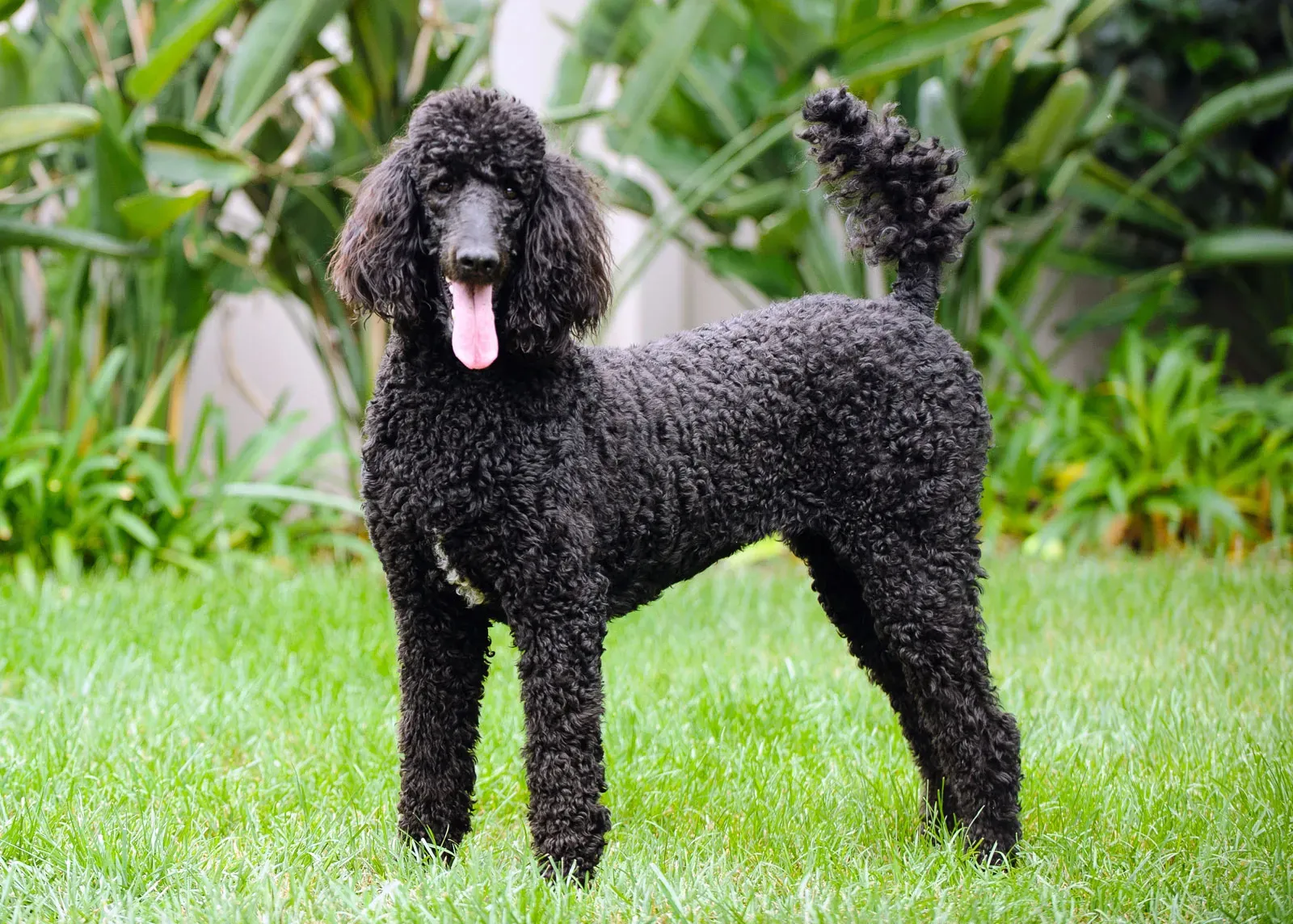
French Poodles have a rich history that dates back centuries. They were initially bred as water retrievers, but their intelligence and versatility made them popular in various roles, including circus performers and companions to the French aristocracy. Today, they are treasured as loving pets and competitive show dogs.
In terms of physical traits, French Poodles have a distinctive appearance. They come in different sizes, including standard, miniature, and toy. Their coat is dense, curly, and hypoallergenic, which means they shed less and are a suitable choice for individuals with allergies. They also stand out with their long, elegant necks, and refined facial features.
When it comes to temperament and personality, French Poodles are highly intelligent and trainable. They are known for their friendly and social nature, making them great companions for families and individuals alike. They are playful, energetic, and display a natural affinity for activities that involve mental stimulation and problem-solving. In addition, French Poodles are affectionate, loyal, and form strong bonds with their owners.
Owning a French Poodle comes with several benefits and considerations. Their low-shedding and hypoallergenic coat make them an excellent choice for individuals who are prone to allergies. They thrive on human companionship and are known for their companionship and loyalty. However, it's important to note that regular grooming needs are required to maintain their coat's health and appearance.
Caring for a French Poodle involves providing a balanced diet and proper nutrition to support their overall well-being. regular exercise and mental stimulation are essential to keep them physically fit and mentally engaged. Training and socialization from an early age are vital to mold their behavior and ensure they grow into well-rounded dogs.

Despite their many positive traits, French Poodles are prone to certain health issues. Some genetic health conditions, such as hip dysplasia and progressive retinal atrophy, can be seen in the breed. Eye and ear problems, as well as orthopedic issues, are also common. Regular vet check-ups and proper care can help manage and prevent these health concerns.
What Are French Poodles?
French Poodles are a popular breed of dog known for their elegance, intelligence, and playful nature. These dogs are highly regarded for their unique appearance, which includes a distinctive curly coat and a graceful gait.
French Poodles, also known as French Poodles, are medium-sized dogs that typically weigh between 45 to 70 pounds. They come in a variety of colors, including black, white, brown, and apricot. Their most distinctive feature is their curly, dense coat, which requires regular grooming to prevent matting and keep it looking its best.
In terms of temperament, French Poodles are known for being highly intelligent and trainable. So, what are French Poodles? They are generally friendly, loyal, and eager to please their owners. French Poodles are known for their high energy levels and need regular exercise and mental stimulation to prevent boredom and destructive behavior.
Owning a French Poodle, or in other words, what are French Poodles, comes with several benefits. They are low-shedding and hypoallergenic, making them a great choice for individuals with allergies. French Poodles are known for forming strong bonds with their owners and make excellent companions. It's important to note that French Poodles require regular grooming to maintain their coat and prevent it from becoming matted.
When caring for a French Poodle, a balanced diet and proper nutrition are important to ensure their overall health and well-being. Regular exercise is also necessary to keep them physically fit and mentally stimulated. Training and socialization are key components of owning a French Poodle because that's what French Poodles are about. They are intelligent dogs that thrive on mental challenges and interaction with others.
While French Poodles are generally healthy dogs, they can be prone to certain genetic health conditions, as well as eye and ear problems. It's important to provide them with regular veterinary care and ensure they receive the necessary vaccinations and check-ups to maintain their health.
So, in conclusion, what are French Poodles? French Poodles are wonderful companions that require love, attention, and proper care. They are intelligent, elegant, and make great additions to families and individuals alike.
History of French Poodles
The history of French Poodles dates back several centuries. These elegant and intelligent dogs have a long and fascinating heritage that spans through generations. French Poodles have consistently been beloved by nobility and the upper class throughout history.
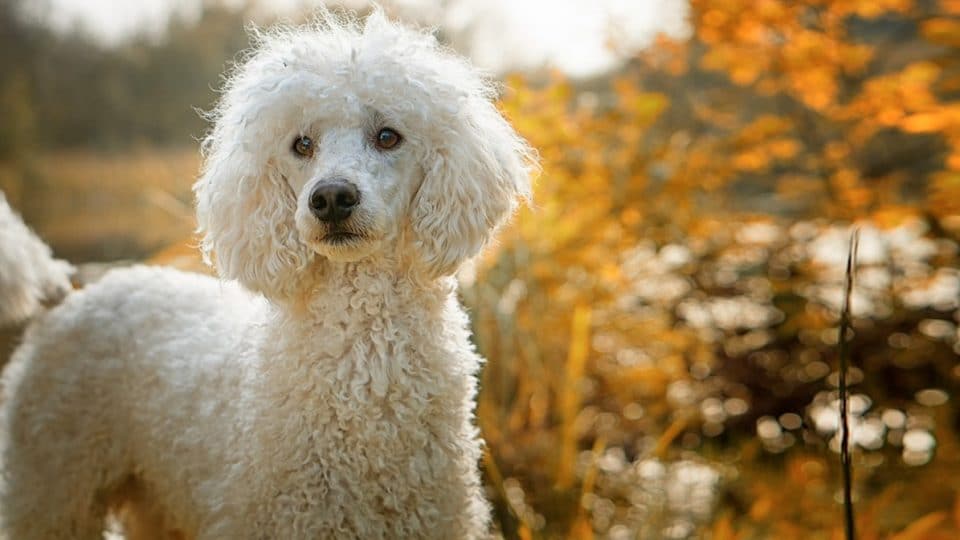
It is interesting to note that despite their name, French Poodles were actually originally bred in Germany. They were initially developed as water retrievers, demonstrating their natural aptitude for retrieving game from water. However, it was in France where they truly flourished and gained popularity, evolving into the refined breed we know today.
During the 18th century, French Poodles captivated the hearts of French nobility and became a symbol of high fashion. They were not only elegant, but also frequently seen accompanying their owners to social events. Their stunning beauty and graceful demeanor made them objects of admiration. The distinctive curly coat of the breed set them apart from other dogs of the era and further enhanced their allure.
In addition to their role as fashion icons, French Poodles played a significant part during World War II. Their intelligence and trainability made them invaluable as messengers and search dogs on the battlefield. Their dedication and innate abilities made them the ideal choice for these critical tasks.
Continuing into modern times, French Poodles showcase their versatility and excel in various dog sports such as agility and obedience trials. Their remarkable skills and adaptability make them sought-after competitors in these arenas. Furthermore, they remain popular as show dogs and cherished companions to people of all walks of life.
The rich and diverse history of French Poodles serves as a testament to their enduring appeal and exceptional qualities. Whether as working dogs, fashion accessories, or loyal companions, French Poodles have consistently proved their worth and adaptability throughout the ages.
Physical Traits and Appearance
Get ready to delve into the fascinating world of French Poodles. In this section, we'll uncover the physical traits and appearance that make these dogs so unique. From their size and weight to the variety of coat colors they possess, and their distinctive features, we'll explore what sets French Poodles apart. So, let's get down to the nitty-gritty and discover the captivating physical attributes that make these dogs a true visual delight.
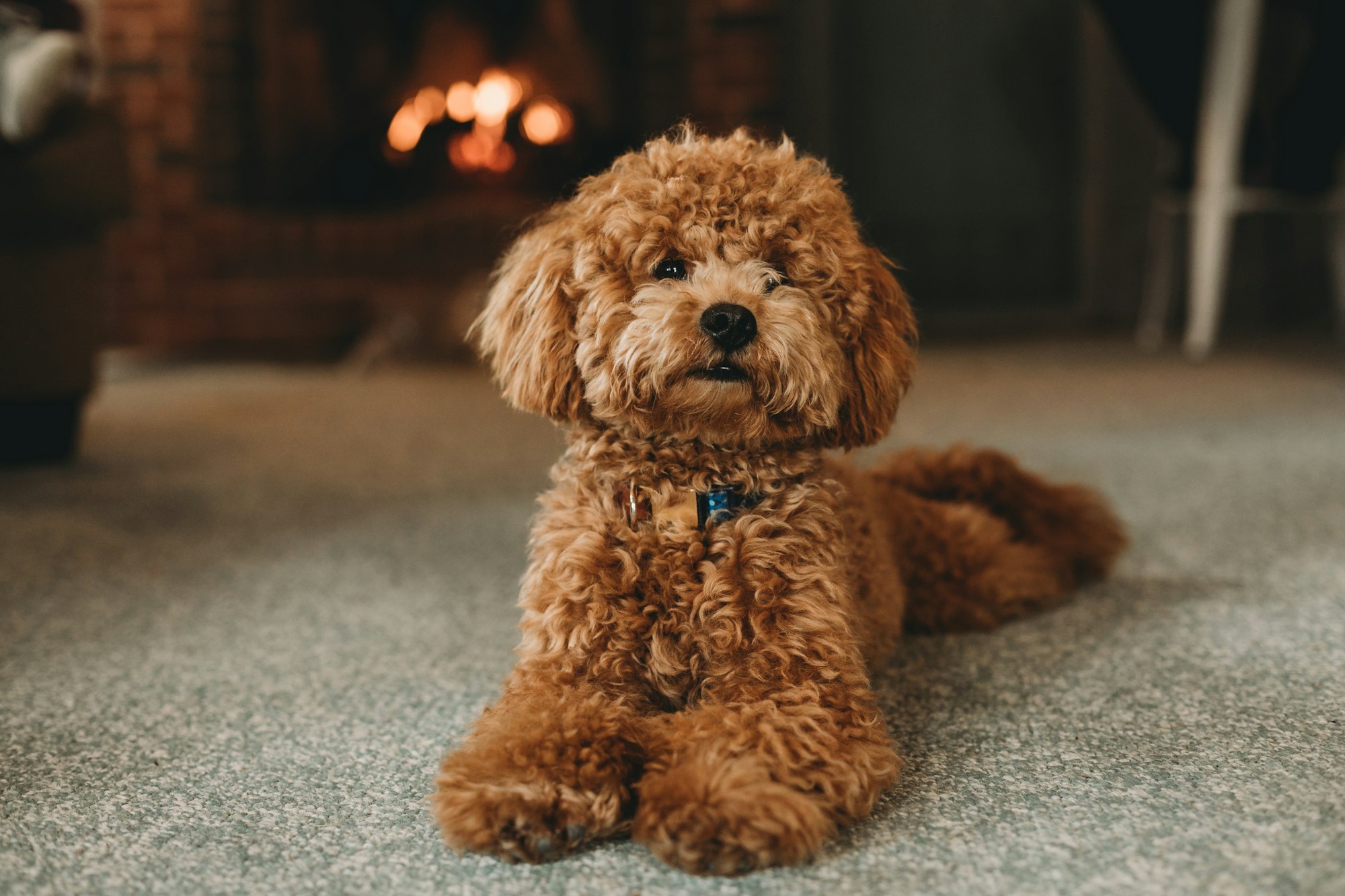
Size and Weight
| Size | Weight |
| Toy | Under 10 pounds |
| Miniature | 10-15 pounds |
| Standard | Over 15 pounds |
When it comes to French Poodles, their size and weight can vary depending on the category they fall into. Toy French Poodles are the smallest in size, weighing under 10 pounds. Miniature French Poodles are slightly bigger, with a weight ranging from 10 to 15 pounds. Standard French Poodles are the largest, weighing over 15 pounds.
It is essential to consider the size and weight of a French Poodle when deciding if they are the right fit for your lifestyle and living situation. If you have limited space or prefer a smaller dog, a Toy or Miniature French Poodle may be more suitable. On the other hand, if you are looking for a larger and more robust dog, a Standard French Poodle may be a better choice.
Remember that these size and weight classifications are general guidelines, and individual French Poodles may vary in their size and weight even within the same category. To gather accurate information about the specific size and weight of a French Poodle you are interested in, it is essential to consult with a reputable breeder or rescue organization.
Fact: The largest recorded French Poodle named Rico weighed 75 pounds and stood 27 inches tall at the shoulder.
Coat and Colors
When it comes to French Poodles, their coat and colors are some of their most distinctive features. Here are some important details about the coat and colors of French Poodles:
- Coat types: French Poodles have a dense and curly coat, which is their most recognizable trait. The curls in their coat give them a distinct appearance.
- Standard colors: French Poodles come in various colors, including black, white, brown, cream, gray, and apricot. These coat colors are the most common and widely accepted in the breed.
- Parti-colors: In addition to the standard colors, French Poodles can also have parti-color coats. Parti-colors are coats with two or more colors, such as a combination of black and white or brown and white. These coat colors create a unique and eye-catching pattern on the dog's coat.
- Phantom colors: Phantom is another color pattern seen in French Poodles. It consists of specific markings on the coat, such as tan or apricot points on a black or brown base color. This creates an interesting and striking contrast in their appearance.
- Secondary colors: Sometimes, French Poodles may have secondary colors, such as silver, blue, or café-au-lait. These coat colors are less commonly seen but add to the variety and diversity within the breed.
- Coat care: The curly coat of French Poodles requires regular grooming to prevent matting and to keep it in good condition. This includes brushing, regular haircuts, and professional grooming to maintain their beautiful appearance.
- Color preference: When choosing a French Poodle, you may have a personal preference for a specific coat color. Whether you prefer a classic black coat or a unique parti-color pattern, it's important to choose a color that you find most appealing.
Distinctive Features
French Poodles are known for their distinctive features that set them apart as a breed. Their elegant and graceful appearance is one of their defining traits. With a square-shaped build and well-proportioned bodies, French Poodles exude sophistication. Their dense and curly coat is another standout feature. Not only does their curly hair give them a stylish look, but it is also hypoallergenic, making them an excellent choice for individuals with allergies.
One of the most unique aspects of French Poodles is their distinctive topknot. They have a special gathering of hair on the top of their head, often tied with a ribbon or elastic band, which adds to their elegant and regal allure. Their charming beard and eyebrows are also worth mentioning. These facial features give them a distinct expression that adds to their overall appeal.
French Poodles' intelligent and alert eyes reflect their high level of intelligence and attentiveness. Typically dark and oval-shaped, their eyes are expressive and captivating.
In addition to their physical attributes, French Poodles move with grace and ease. Their gait is smooth and coordinated, showcasing their agility and athleticism.
Choosing a French Poodle as a pet means enjoying all these distinctive features. You can expect a dog with an elegant appearance, a curly and hypoallergenic coat, a unique topknot, and charming facial features. Their intelligent eyes and graceful movement only enhance their overall appeal. It's no wonder that French Poodles are a beloved and popular breed among dog enthusiasts.
Temperament and Personality
When it comes to the temperament and personality of French Poodles, they possess key characteristics worth considering. These poodles exhibit high intelligence, making them quick learners who easily grasp new commands and tricks. Additionally, they are highly affectionate and thrive on companionship, displaying a loving and loyal nature. Alongside their affectionate nature, French Poodles possess a playful and energetic disposition that makes them excellent companions for active individuals or families. They also demonstrate sociability, getting along well with both people and other animals when properly socialized from a young age. Moreover, they naturally possess an alert nature, making them excellent watchdogs capable of promptly detecting any unusual activity or strangers in their surroundings.
While considering getting a French Poodle, it is crucial to acknowledge that individual personalities may vary. Cultivating a well-rounded French Poodle with a balanced temperament and delightful personality requires proper training, socialization, and the provision of a loving environment.
Benefits and Considerations of Owning a French Poodle
Owning a French Poodle comes with a unique set of benefits and considerations. Discover the joys of having a low-shedding and hypoallergenic furry companion, as we explore the first sub-section. We'll also dive into the wonderful qualities that make French Poodles great companions, and finally, we'll touch upon the regular grooming needs that come along with these delightful four-legged friends. Get ready to explore the world of French Poodles and all the aspects that make them a popular choice for pet lovers.
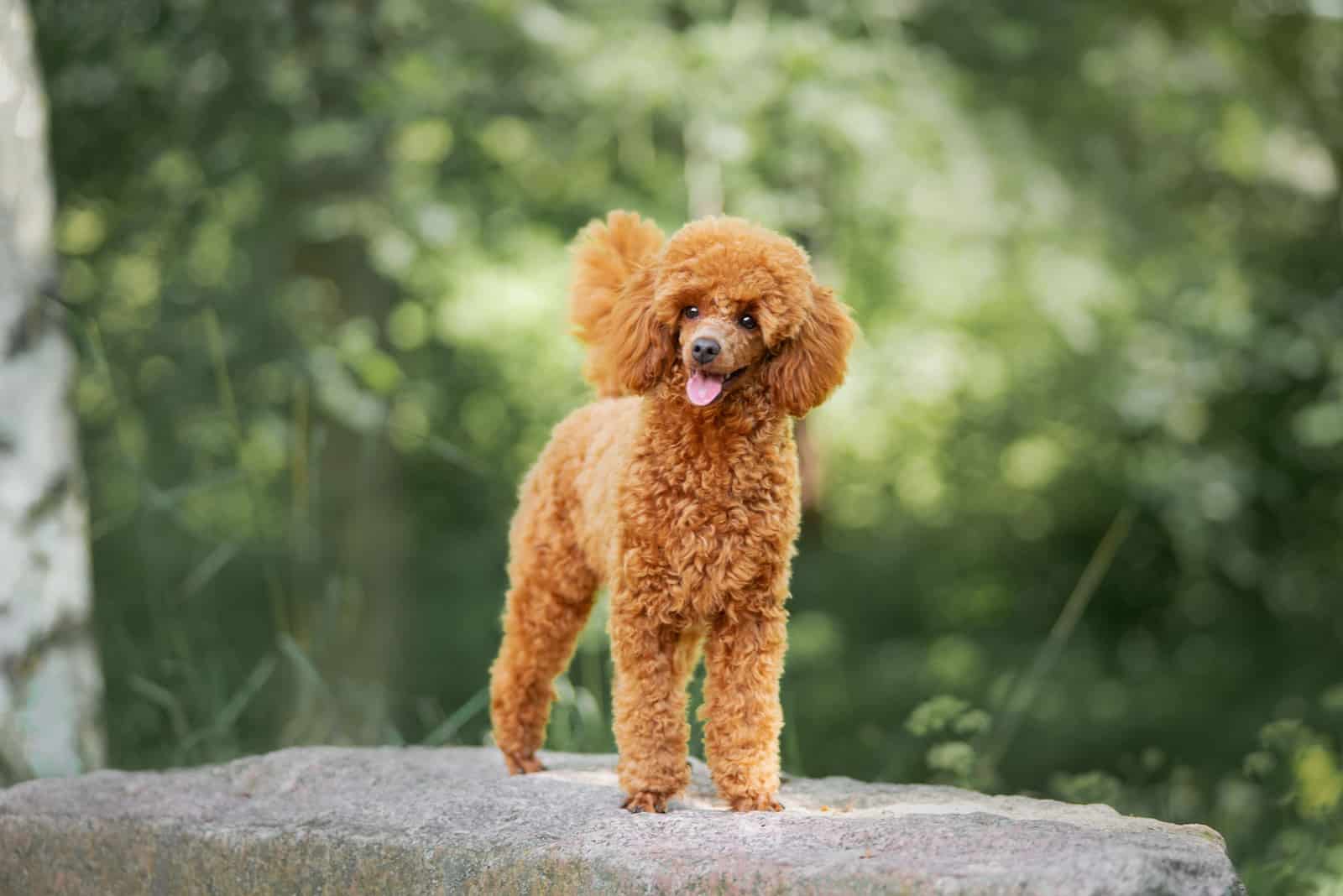
Low-Shedding and Hypoallergenic
When considering the low-shedding and hypoallergenic qualities of French Poodles, there are several important points to keep in mind:
- French Poodles have a unique coat texture that is low-shedding, which means they produce less dander and hair compared to other breeds. This can be particularly beneficial for individuals with allergies or those who prefer a cleaner living environment.
- Their curly, dense coat helps to trap loose hair and dander, reducing the amount that is released into the environment. This can minimize allergic reactions and keep the home cleaner.
- Regular grooming is essential for maintaining the low-shedding and hypoallergenic qualities of French Poodles. Their curly coat requires frequent brushing to prevent matting and to remove any loose hair or allergens.
- Bathing should be done regularly, using a gentle shampoo recommended by a veterinarian or groomer. This helps to keep their skin and coat clean, reducing the chances of allergies or skin irritations.
- Although French Poodles are considered to be hypoallergenic, it's important to remember that no dog breed is completely allergen-free. People with severe allergies should spend time with a French Poodle before bringing one into their home, to ensure they don't have any adverse reactions.
If you're looking for a dog that is low-shedding and hypoallergenic, a French Poodle may be an excellent choice. With their unique coat and proper grooming, they can minimize allergens in the environment and provide a comfortable living space for allergy sufferers. Remember to consider your individual allergies and spend time with a French Poodle before making a decision.
Great Companions
French Poodles are known to be great companions, providing love, loyalty, and companionship to their owners. Here are some reasons why French Poodles make excellent companions:
- Intelligent: French Poodles are highly intelligent dogs. They are quick learners and can easily understand and follow commands. This makes them great companions as they can be trained to behave well and adapt to various situations.
- Playful: French Poodles have a playful and energetic nature. They love to engage in playtime activities with their owners, such as fetching a ball or playing hide and seek. Their playful nature can bring joy and entertainment to their owners.
- Affectionate: French Poodles are known for their affectionate nature. They form strong bonds with their owners and enjoy spending quality time with them. They love to cuddle, snuggle, and give kisses, providing comfort and emotional support.
- Good with Families: French Poodles are generally friendly and get along well with people of all ages, including children and the elderly. They make excellent family pets and are gentle and patient with children, making them great companions for the whole family.
- Loyal: French Poodles are loyal and devoted to their owners. They will always be by your side and offer a sense of security and companionship. Their loyalty makes them great companions, as they will always stay by your side through thick and thin.
- Adaptable: French Poodles are adaptable dogs that can adjust well to different living situations. Whether you live in an apartment or a house, as long as they receive enough exercise and mental stimulation, they can thrive in various environments.
If you're looking for a loyal, intelligent, and playful companion, a French Poodle may be the perfect choice for you.
Regular Grooming Needs
Regular grooming needs are crucial for keeping a French Poodle looking their best. Here are the essential grooming needs of a French Poodle:
- Brushing: French Poodles have dense, curly coats that can easily become tangled or matted. Regular brushing helps to prevent mats and keeps their coat looking neat and tidy.
- Bathing: While French Poodles do not need frequent baths, regular bathing is necessary to keep their coat clean and free of dirt and debris. A bath every 4-6 weeks is typically sufficient.
- Trimming: The coat of a French Poodle requires regular trimming to maintain its shape and prevent excessive growth. Professional grooming is recommended to achieve the signature "poodle clip" or other desired hairstyles.
- Eye and Ear Care: French Poodles are prone to eye discharge and ear infections. Regular cleaning of the eyes and ears is important to prevent infections and maintain the overall health of these sensitive areas.
- Nail trimming: Like all dogs, French Poodles need regular nail trims to prevent overgrowth and discomfort. Long nails can cause issues with walking and may even lead to injuries.
- Teeth brushing: Dental care is crucial for French Poodles to prevent dental diseases such as gum inflammation and tooth decay. Regular brushing with dog-specific toothpaste helps to maintain good oral hygiene.
Regular grooming needs not only keep a French Poodle looking their best but also contribute to their overall health and well-being. By maintaining proper grooming practices, you can ensure that your French Poodle is happy, healthy, and looking fabulous.
Caring for a French Poodle
Looking to provide top-notch care for your French Poodle? Look no further! In this section, we'll explore the keys to caring for your beloved four-legged friend. From ensuring a balanced diet and proper nutrition to engaging in exercise and mental stimulation, as well as the importance of training and socialization, we've got you covered. Get ready to learn the essentials of keeping your French Poodle healthy, happy, and thriving!
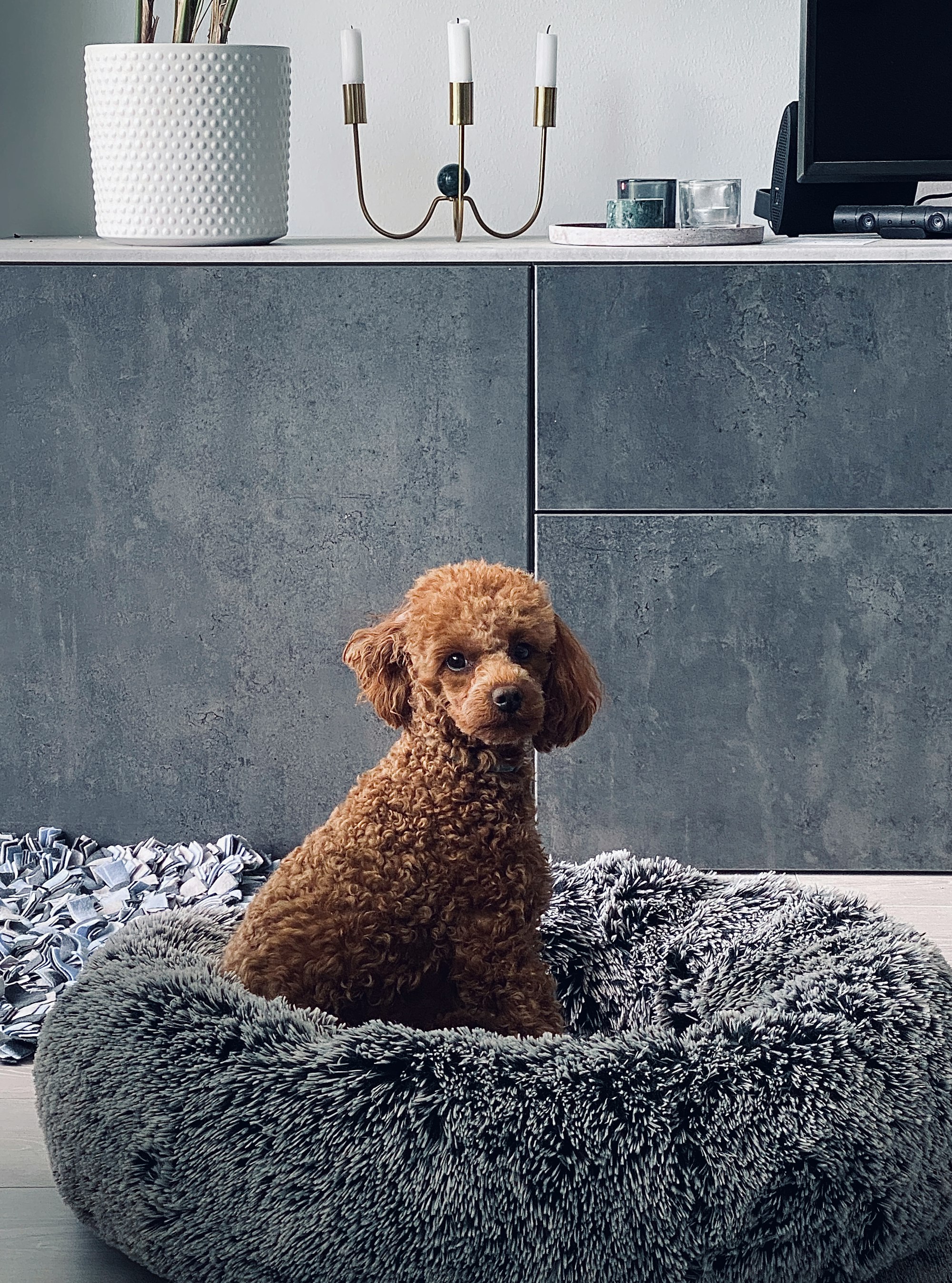
Diet and Nutrition
The diet and nutrition of a French Poodle are crucial for their overall health and well-being. Here are some important considerations:
1. Feeding Requirements: French Poodles require a balanced diet that provides them with the necessary nutrients for their size and activity level. It is recommended to feed them high-quality commercial dog food that is specifically formulated for small or medium-sized breeds.
2. Portion Control: It is important to measure the amount of food you are feeding your French Poodle to prevent overeating and obesity. Follow the feeding guidelines provided by the dog food manufacturer and adjust the portion size based on your dog's weight, age, and activity level.
3. Nutritional Needs: French Poodles need a diet that is rich in protein, as it supports their muscle development and overall growth. They require a moderate amount of healthy fats for optimal coat and skin health. High-quality dog food will contain the necessary balance of proteins, fats, carbohydrates, vitamins, and minerals.
4. Hydration: Access to fresh and clean water is essential for a French Poodle's well-being. Ensure that your dog has constant access to water throughout the day.
5. Treats and Supplements: Treats should be given in moderation and should not exceed 10% of their daily calorie intake. Consult with a veterinarian before introducing any supplements into your French Poodle's diet to ensure they are necessary and safe.
6. Special Dietary Requirements: Some French Poodles may have specific dietary needs or food allergies. If your dog has any sensitivities or allergies, work with your veterinarian to determine an appropriate diet that meets their nutritional requirements.
By maintaining a healthy and balanced diet, you can ensure that your French Poodle remains healthy, energetic, and happy. Remember to consult with a veterinarian for personalized recommendations based on your dog's specific needs.
Exercise and Mental Stimulation
When it comes to French Poodles, exercise and mental stimulation are vital for their overall well-being and happiness. Here are some essential aspects to consider:
- Regular physical exercise: French Poodles have moderate energy levels and require daily exercise to maintain their health. This can include activities such as brisk walks, playtime in a secure area, or supervised off-leash play with other friendly dogs.
- Mental stimulation: French Poodles are highly intelligent and thrive on mental challenges. Engage their minds with activities like puzzle toys, obedience training, and agility courses. These activities not only keep them mentally stimulated but also help to strengthen the bond between you and your dog.
- Interactive playtime: Keep your French Poodle entertained with interactive toys that require problem-solving or treat-dispensing. This will encourage them to stay active during play and provide mental stimulation at the same time.
- Socialization: Regular socialization with other dogs and people is important for French Poodles. It helps them develop good behavior and confidence. Consider enrolling them in puppy classes or setting up playdates with other compatible dogs.
- Variety and consistency: Keep the exercise routine varied and interesting to prevent boredom. Mix up the types of physical activities, toys, and training sessions. Consistency is also key to reinforcing good behavior and maintaining a healthy routine.
Remember, each French Poodle is unique, and their exercise needs may vary based on their age, health, and temperament. It's important to consult with a veterinarian or a professional dog trainer to develop a tailored exercise plan for your specific pet.

Training and Socialization
Training and socialization are essential for ensuring that French Poodles grow into well-behaved and confident dogs. Here are some key considerations:
- Start early: Begin training and socializing your French Poodle as soon as you bring them home. Puppies have a critical learning period between 8-16 weeks, so expose them to different people, animals, and environments during this time.
- Positive reinforcement: Use positive reinforcement techniques such as treats, praise, and rewards to encourage good behavior. French Poodles are intelligent and eager to please, so they respond well to training and socialization that incorporates positive reinforcement.
- Obedience training: Teach essential commands like sit, stay, come, and heel. Focus on consistency and repetition to reinforce these commands. Consider enrolling your French Poodle in obedience classes to enhance their training and socialization skills.
- Leash training: Train your French Poodle to walk calmly on a leash. This is important for their safety and the safety of others. Start with short leash walks in a quiet area, gradually increasing the duration and introducing distractions. It's an integral part of their training and socialization.
- Socializing with people: Introduce your French Poodle to different people of all ages, including children. This will help them become comfortable and well-mannered around strangers. Encourage positive interactions and discourage any signs of fear or aggression as part of their training and socialization process.
- Socializing with other dogs: Arrange playdates or take your French Poodle to dog parks to interact with other well-behaved dogs. This will teach them proper social etiquette and improve their communication skills. It's an important aspect of their training and socialization.
- Expose to various environments: Expose your French Poodle to different environments such as parks, streets, cafes, and public transport. This will make them adaptable and confident in various situations, enhancing their training and socialization.
- Continued training: Training and socialization should be an ongoing process throughout your French Poodle's life. Practice commands regularly, continue to expose them to new experiences, and reinforce positive behavior. Consistency in training and socialization is key.
By prioritizing training and socialization, you can ensure that your French Poodle becomes a well-rounded and obedient companion.
Common Health Issues
When it comes to our beloved French Poodles, it’s important to be aware of common health issues that they may face. From genetic health conditions to eye and ear problems, as well as orthopedic issues, we'll take a closer look at the health concerns these elegant dogs may encounter. So, buckle up and let's dive into the world of French Poodle health, exploring the challenges that can arise and how they can be managed or prevented.
Genetic Health Conditions
When it comes to French Poodles, genetic health conditions are something that potential owners should be aware of. These conditions are inherited and can have an impact on the overall health and well-being of the dog. Here are some genetic health conditions that can be observed in French Poodles:
- Progressive Retinal Atrophy (PRA): PRA is a group of genetic diseases that results in the degeneration of the retina, leading to progressive vision loss and eventually blindness. It is important to note that not all French Poodles will develop PRA, but it is a condition that can occur in the breed.
- Hip Dysplasia: Hip dysplasia is a common orthopedic condition in many dog breeds, including French Poodles. It is characterized by an abnormal formation of the hip joint, which can eventually lead to pain, lameness, and arthritis. Regular exercise, a balanced diet, and proper breeding practices can help reduce the risk of hip dysplasia.
- Epilepsy: Epilepsy is a neurological disorder that can cause recurrent seizures in French Poodles. While the exact cause of epilepsy in dogs is often unknown, it is believed to have a genetic component. Medication can help manage seizures in affected dogs.
- Von Willebrand's Disease: Von Willebrand's disease is a bleeding disorder caused by a deficiency of a blood clotting protein called von Willebrand factor. This can result in excessive bleeding, especially after surgery or injury. It is important to inform veterinarians about this condition if your French Poodle undergoes any medical procedures.
It's crucial to note that not all French Poodles will develop these genetic health conditions, but it's essential to be aware of the potential risks. When choosing a French Poodle, consider obtaining one from a reputable breeder who conducts health testing and ensures good breeding practices. Regular veterinary check-ups and a nutritious diet can also contribute to keeping your French Poodle healthy and happy.
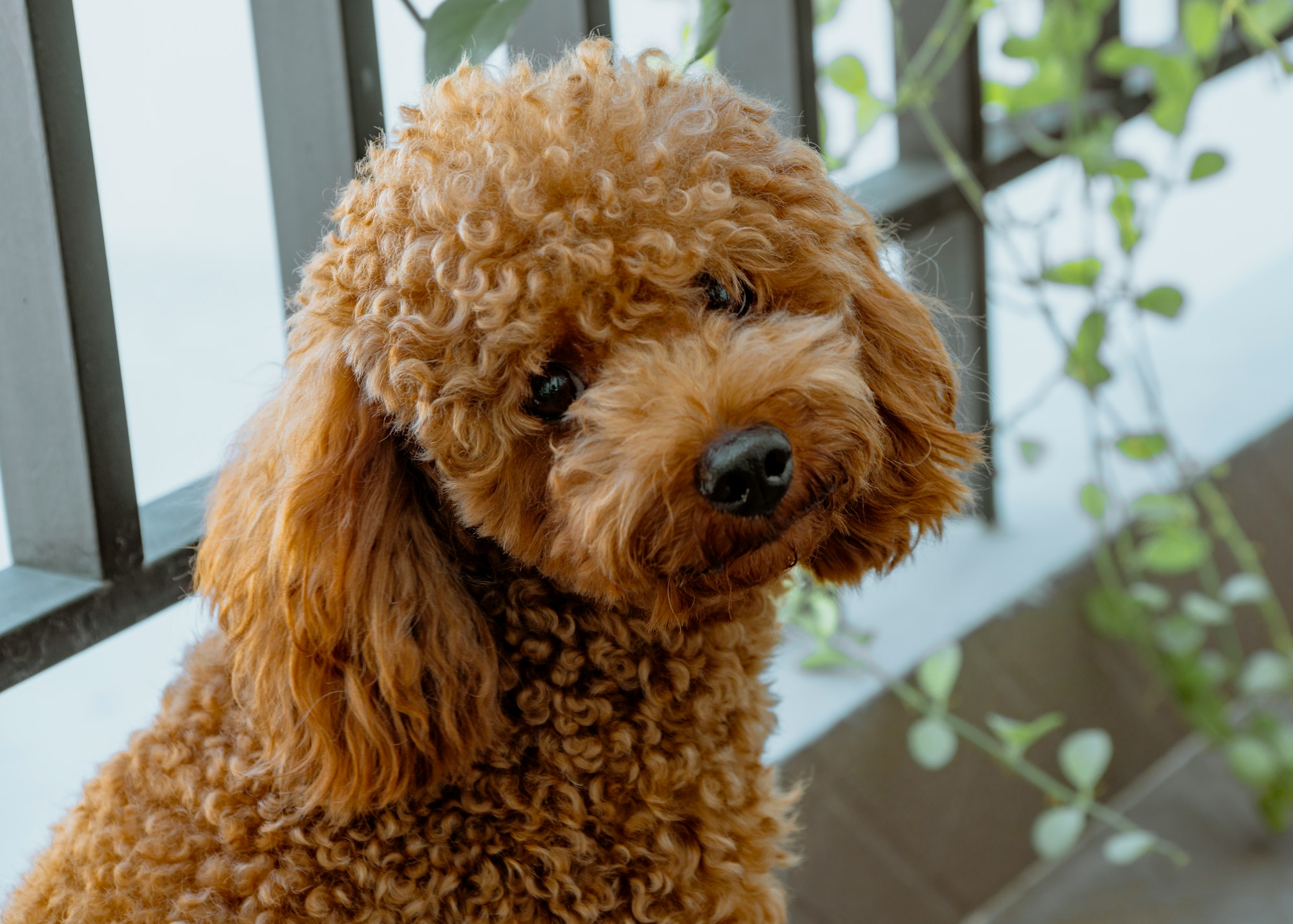
Genetic health conditions can have an impact on French Poodles, and it's important for potential owners to be aware of them. By being knowledgeable and taking necessary precautions, you can provide the best possible care for your French Poodle and help promote a healthy and fulfilling life for your furry friend.
Eye and Ear Problems
French Poodles may experience certain eye and ear problems that owners should be aware of. Active grooming is important to prevent and address these eye and ear problems.
1. Eye problems: French Poodles can be prone to certain eye conditions. They may develop cataracts, which cause clouding of the eye lens and can impair vision. They may also experience progressive retinal atrophy, which gradually leads to vision loss. Regular eye examinations by a veterinarian can help detect these eye problems early on.
2. Ear problems: Due to their long, floppy ears, French Poodles are more susceptible to ear infections. The warm and moist environment inside the ear can promote the growth of bacteria or yeast. Owners should regularly check and clean their Poodle's ears to prevent ear infections. If any signs of redness, odor, or discharge are present, it is important to seek veterinary care promptly.
3. Grooming and care: Proper grooming is essential to maintain the health of a French Poodle's eyes and ears. Regularly cleaning their eyes with a damp cloth can help remove any debris and prevent irritations. Similarly, cleaning the ears using a veterinarian-approved ear cleaner can help prevent ear infections. Trimming the hair around the ears can also improve airflow and reduce the risk of ear infections.
By being proactive in addressing these eye and ear problems, French Poodle owners can help ensure the well-being and comfort of their beloved pets. Regular veterinary check-ups and proper grooming practices are key in maintaining good eye and ear health for these adorable dogs.
Orthopedic Issues
Orthopedic issues are a common concern for French Poodles, just like they are for many other dog breeds. These orthopedic issues can affect the bones, joints, and muscles of the dogs, causing pain and discomfort. It is important for owners to be aware of these orthopedic issues and take necessary precautions to prevent and manage them.
One common orthopedic issue in French Poodles is hip dysplasia, which is an orthopedic condition that occurs due to genetic factors. Hip dysplasia leads to improper development of the hip joint, resulting in instability and joint degeneration. This orthopedic problem can cause lameness and difficulty in movement. Another frequently encountered issue is patellar luxation, where the kneecap slips out of its normal position. This orthopedic issue can cause pain, lameness, and difficulty in walking.
In order to prevent orthopedic issues, it is crucial to provide the French Poodle with a healthy diet and ensure they engage in regular exercise to maintain a healthy weight. Activities that exert excessive strain on their joints, such as jumping from heights or engaging in strenuous exercise on hard surfaces, should be avoided. Regular check-ups with a veterinarian can help identify any early signs of orthopedic problems and ensure appropriate treatment and management.
In severe cases, it may be necessary to opt for surgery to treat orthopedic issues in French Poodles, which can include procedures like hip or knee joint replacements. Additionally, physical therapy and rehabilitation exercises may be recommended to enhance mobility and strengthen the affected muscles.
While orthopedic issues are prevalent among French Poodles, proper care and management can minimize their impact. It is essential for owners to be proactive in preventing and addressing these orthopedic issues to ensure the well-being and comfort of their beloved pets.
Frequently Asked Questions
1. What are the different sizes of Poodles?
The different sizes of Poodles are Standard Poodle, Medium Poodle, Miniature Poodle, and Toy Poodle.
2. Do Poodles come in different coat colors?
Yes, Poodles come in solid colors such as white, black, cream, silver, gray, blue, brown, and apricot.
3. Can Poodles learn from humans?
Yes, Poodles are highly intelligent and can easily learn from humans.
4. Are Poodles suitable for therapy work?
Yes, Poodles excel in obedience, agility, and therapy work.
5. Do Poodles experience hair loss or skin thickening?
Poodles are prone to certain health issues such as hair loss (sebaceous adenitis) and skin thickening.
6. Are Teacup Poodles a separate breed?
No, Teacup Poodles are not a separate breed. They are just smaller versions of the Standard Poodle.
Get more expert advice on pet-parenting by visiting the Off Leash blog at TryFi.com.
TryFi's The Fi Dog Collar is a must-have for any pet parent, it's a GPS tracking collar that helps you keep tabs on your dog's location, activity, and sleep patterns, and alerts you if they escape your backyard. Try the Fi Dog Collar today!




